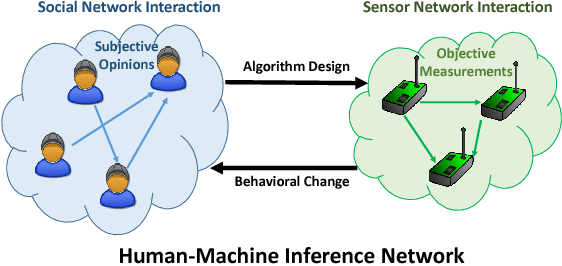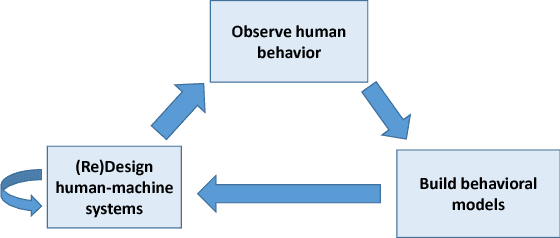Human-Machine Inference Networks For Smart Decision Making: Opportunities and Challenges
Paper and Code
Jan 29, 2018

The emerging paradigm of Human-Machine Inference Networks (HuMaINs) combines complementary cognitive strengths of humans and machines in an intelligent manner to tackle various inference tasks and achieves higher performance than either humans or machines by themselves. While inference performance optimization techniques for human-only or sensor-only networks are quite mature, HuMaINs require novel signal processing and machine learning solutions. In this paper, we present an overview of the HuMaINs architecture with a focus on three main issues that include architecture design, inference algorithms including security/privacy challenges, and application areas/use cases.
 Add to Chrome
Add to Chrome Add to Firefox
Add to Firefox Add to Edge
Add to Edge